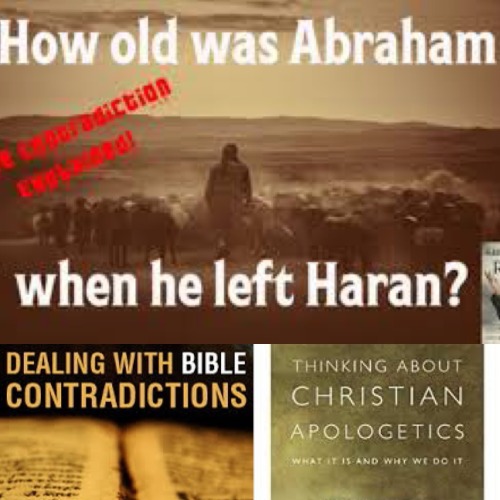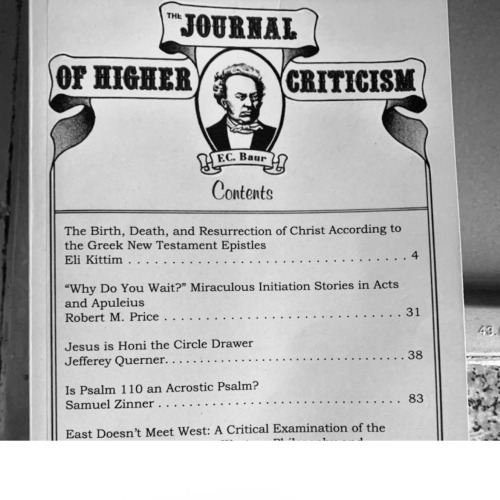Biblicalhermeneutics - Tumblr Posts
Easy Believism Versus Lordship Salvation
El Kittim
Essentially, the teaching of “easy-believism” (which proponents prefer to call “free grace,” or some similar term), asserts that the faith which saves is mere intellectual assent to the truths of the gospel, accompanied by an appeal to Christ for salvation. According to proponents of the “free grace” movement (i.e. “easy-believism”), it is not required of the one appealing for salvation that he be willing to submit to the Lordship of Christ or to stop sinning.
This shallow understanding of salvation and the gospel, known as "easy-believism," stands in stark contrast to what the Bible teaches. To put it simply, the gospel call to faith presupposes that sinners must repent of their sin and yield to Christ's authority. This, in a nutshell, is what is commonly referred to as lordship salvation.
Question:
Can a person receive Jesus as his/her Savior without receiving Him as his/her Lord?
Easy believism says, yes.
Lordship salvation says, no.
What do you say?

How Old Was Abraham When He Left Haran?
By Bible Researcher Eli Kittim 🎓
The Apparent Contradiction
There’s a seeming contradiction in the Bible concerning Abraham’s age when he left Haran. The apparent contradiction is as follows. If Terah died when he was 205 years old, but fathered Abram when he was 70, then Abram must have been 135 years old when his father Terah died (as Gen. 11.26, 32 suggest), not 75, as Gen. 12.4 indicates. For the story to work without any discrepancies, Terah would literally have to be 130 years old when he fathered Abram. But it seemed as if he were only 70 years old. Hence the apparent contradiction. Below are the relevant citations that appear to contradict each other.
—-
Genesis 12.4 (ESV):
So Abram went, as the LORD had told him,
and Lot went with him. Abram was seventy-
five years old when he departed from
Haran.
Acts 7.2:
And Stephen said: ‘Brothers and fathers,
hear me. The God of glory appeared to our
father Abraham when he was in
Mesopotamia, before he lived in Haran.’
Acts 7.4:
Then he went out from the land of the
Chaldeans and lived in Haran. And after his
father died, God removed him from there
into this land in which you are now living.
Genesis 11.26:
When Terah had lived 70 years, he fathered
Abram, Nahor, and Haran.
Genesis 11.32:
The days of Terah were 205 years, and
Terah died in Haran.
—————
Apologetic Exegesis
The key passage is Gen. 11.26. The Hebrew text doesn’t explicitly say that *when* Terah was 70 years old he begat Abram. Rather, it puts it thusly (Gen. 11.26 KJV):
And Terah lived seventy years, and begat
Abram, Nahor, and Haran.
Nowhere is it explicitly mentioned that Terah had all 3 children when he was 70 years old. Nor is there any direct evidence that these children were triplets, or that they were born on the exact same date, month, or year. The verse in Gen. 11.26 merely indicates that after Terah reached a certain age——namely, 70 years old——he began to father children. But exactly when these children were actually born is unknown. The only thing that’s clear from Gen. 11.26 is that they were born after Terah had reached a certain age.
It’s quite possible, for example, that some of his children could have been born when Terah was 130 years old. Nothing in the text would contradict the timing of such a birth. As long as Terah fathered at least one child after he was 70, the rest could have been born anytime between Terah’s 70th and 205th birthday.
The order in which the names of Terah’s sons are listed may not reflect the precise chronological order in which the children were actually born. The text is simply indicating their order of importance. Given that Abram is a key figure in the Old Testament and the common patriarch of the Abrahamic religions, he’s obviously mentioned first:
there is yet a question whether Abram was
born first as listed, or perhaps he is listed
first because he was the wisest similar to
Shem, Ham, and Jafeth where Shem was
not the oldest, but was the wisest. … the
Talmud leaves the above question open.
(Wikipedia)
—————
Conclusion
Actually, Abram could have been 75 years old when he left Haran, as the text indicates (Gen. 12.4). And maybe he did leave Haran “after his father died” (Acts 7.4) at the age of 205 (Gen. 11.32). There is no contradiction with regard to the dates. The assumed contradiction is actually based on fallacious reasoning and speculation. It’s based on an eisegesis, that is, a misinterpretation of the text. Readers often assume that the text is telling us that Abram was born *when* Terah was 70 years old. But that’s a conjecture. The text doesn’t say that at all. All the text says is that once Terah reached a certain age, he began fathering sons. But exactly when each and every son was born is unknown.
—

The Tower of Babel: History or Prophecy?
By Biblical Researcher & Goodreads Author Eli Kittim 📖
The New World Order
For decades, atheists, anarchists, and irreligious organizations——such as the Freedom From Religion Foundation & the American Atheists——have tried to ban religious freedom and religious expression from society, culture, education, and the media. And, by and large, these secular humanists have won that fight. The Bible was removed from American classrooms in the 1960s, and shortly thereafter prayer and the Ten Commandments were also removed.
The current shift toward atheism in America and Europe is largely due to these political endeavours. And in the globalist agenda——as propounded by Klaus Schwab of the World Economic Forum, & António Guterres (the Secretary-General of the United Nations)——religion plays a subordinate role in the upcoming one-world government.
In fact, powerful leaders have been conspiring for decades. We’re talking about a global dictatorship that has been in the making since the founding of the Federal Reserve in the early part of the 20th century. It has been affectionately called by Henry Kissinger, George H. W. Bush, Barack Obama, & Gordon Brown, among others, as “the new world order.” It’s not a conspiracy theory since many US presidents, British prime ministers, and high level officials——including Charles, Prince of Wales——have explicitly referred to it as an ideal future government that they’re all working towards as if “they are one people” (cf. Genesis 11.6)! This is no longer a conspiracy theory since this totalitarian world government——which has now reared its ugly head by censoring the masses through social media-driven panic, fake news, government lockdowns, and forced mask and passport mandates——is emerging before our very eyes. Surprisingly, the Bible foresaw this attack on religion, and especially on Christianity, and recorded it in Scripture. Psalm 2.1-3 (NRSV) reads:
Why do the nations conspire, and the
peoples plot in vain? The kings of the earth
set themselves, and the rulers take counsel
together, against the Lord and his anointed,
saying, ‘Let us burst their bonds asunder,
and cast their cords from us.’
The Tower of Babel & the One-World Government
The modern discoveries & innovations in virology, nanotechnology, artificial intelligence, robotics, genetics, molecular biology, as well as the harnessing of nuclear energy are seemingly implied in the following Biblical excerpt from Genesis 11.6:
and this is only the beginning of what they
will do; nothing that they propose to do will
now be impossible for them.
Might the scheme to “confuse their language” be a form of electromagnetic pulse attack known as EMP? An EMP is a massive burst of electromagnetic energy that can be generated using nuclear weapons. It creates an enormous magnetic field that can cause widespread damage & disruption to electrical and power grids within range. According to Peter Pry, a defense analyst with the Congressional EMP Commission:
You can use a single weapon to collapse
the entire North American power grid. …
Once the electric grid goes down,
everything would collapse … Everything
depends on electricity: telecommunications,
transportation, even water.
This is certainly one way to “confuse” or disrupt all forms of communication.
Since the towers or ziggurats that ancient people built were no match for the modern skyscrapers, might the Tower-of-Babel narrative be a *prophecy* instead of an origin myth about why people speak different languages? Let’s look at the evidence. The Hebrew Bible (Gen. 11.4) says that the people built a tower (וּמִגְדָּל֙ ū·miḡ·dāl) whose top (וְרֹאשׁ֣וֹ wə·rō·šōw) is in the heavens, or will reach into heaven (בַשָּׁמַ֔יִם ḇaš·šā·ma·yim)! Have the ancients ever built a tower that soared above the clouds? Hardly! However, the Jeddah Tower (aka Kingdom Tower), currently built in Saudi Arabia, will be 1 km (3,281 ft) high, “whose top” will literally be “in the heavens.” And it is appropriately called: a “tower.”

Notice also that many of today’s highest skyscrapers are actually called “towers” and they do, in fact, reach the clouds: the Jin Mao Tower, in Shanghai, the Willis Tower, in Chicago, the Petronas Towers, in Kuala Lumpur, the Burj Khalifa, in Dubai, even the Empire State Building, in New York City. Here’s a shot of the Empire State Building peeking above the clouds!

The Prophecy Concerning Babylon the Great
Revelation 18.8-21
‘therefore her plagues will come in a single
day — pestilence and mourning and famine
— and she will be burned with fire; for
mighty is the Lord God who judges her.’ And
the kings of the earth, who committed
fornication and lived in luxury with her, will
weep and wail over her when they see the
smoke of her burning; they will stand far off,
in fear of her torment, and say, ‘Alas, alas,
the great city, Babylon, the mighty city! For
in one hour your judgment has come.’ …
Then a mighty angel took up a stone like a
great millstone and threw it into the sea,
saying, ‘With such violence Babylon the
great city will be thrown down, and will be
found no more.’
Conclusion
All of the evidence——including the language of the Hebrew Bible——supports an *apocalyptic* rather than a pseudo-historical Tower-of-Babel. The so-called “confusion” or disruption of communication may indicate the coming world Judgment in the form of EMP attacks & nuclear weapons, as alluded to in Daniel 12.1, Joel 2.31, Zechariah 14.12, Matthew 24.6-21, Luke 21.20-26, & Revelation 6.12-15 (i.e. the Great Tribulation). And the prophecy is set to take place when the whole world will be united as “one people” (Genesis 11.6), or one-world government!
Genesis 11.4-9:
Then they said, ‘Come, let us build
ourselves a city, and a tower with its top in
the heavens, and let us make a name for
ourselves; otherwise we shall be scattered
abroad upon the face of the whole earth.’
The Lord came down to see the city and the
tower, which mortals had built. And the Lord
said, ‘Look, they are one people, and they
have all one language; and this is only the
beginning of what they will do; nothing that
they propose to do will now be impossible
for them. Come, let us go down, and
confuse their language there, so that they
will not understand one another's speech.’
So the Lord scattered them abroad from
there over the face of all the earth, and they
left off building the city. Therefore it was
called Babel, because there the Lord
confused the language of all the earth; and
from there the Lord scattered them abroad
over the face of all the earth.
—

Who Is Eli Kittim & What Does He Believe?
By Award-Winning Author Eli Kittim 🎓
——-
Why Do I Write Under the Pseudonym of Eli of Kittim?
For the record, “Eli of Kittim” is my pen name, not my real name. I chose this name because it points directly to Jesus Christ himself. The name “Eli of Kittim” is a cryptic reference to Jesus, and it really means, “The God of Greece.” The idea that the Messiah’s name is Eli is mentioned in many passages of the Old and New Testaments. For instance, Matthew 27.46 defines the name “Eli” as God. It reads: “Eli, Eli ... that is, My God, my God.” Similarly, Daniel 12.1 refers to “the great [messianic] prince” named, “Michael” (Mika-el). Michael means “Who is like God?” But if you break-up the word, the prefix “Mika” means “who is like,” while “el,” the suffix, refers to God himself. The same holds in Matthew 1.23 where the author informs us that Jesus’ name is “Emmanuel," which means, "God is with us." Once again, the prefix is based on the root (im) עִם, which means “with,” while the root-suffix (el) אֵל means “God” (cf. Isaiah 7.14). This is probably why God says in Malachi 4.5 (DRB), “Behold I will send you Elias the prophet, before the coming of the great and dreadful day of the Lord.” So, the common denominator in all these Biblical verses is that the Messiah is called Eli.
Moreover, Kittim is a repeated Old Testament Biblical name that represents the island of Cyprus, which was inhabited by Greeks since ancient times, and thus represents the Greeks. In Genesis 10.4 we are told that the Kittim are among the sons of Javan (Yavan), meaning Greece (see Josephus “Antiquities” I, 6). Even the War Scroll, found among the Dead Sea Scrolls, foretells the end-time battle that will take place between Belial and the King of the Kittim. This is all in my book, chapter 9. So, accordingly, Eli of Kittim roughly means, “The God of Greece.” That’s the name’s cryptic significance. And since the name Eli of Kittim represents the main argument of my book, I use it as my pen name!
——-
Bio
I’ve been involved in the study of serious Bible scholarship for over 30 years. I’m what you might call a Bible maven! I hold an MA degree in psychology from the New School for Social Research in New York City, and I’m also a graduate of the John W. Rawlings School of Divinity and of the Koinonia (Bible) Institute. I’ve also studied Biblical criticism at both Queens College and The New School (Eugene Lang). I’m fluent in Koine Greek, and I’m also a native Greek speaker. I also read Biblical Hebrew. I read the New Testament in the original languages. Currently, I’m a Bible researcher, published writer, and an award-winning Goodreads book-author. My book is called “The Little Book of Revelation: The First Coming of Jesus at the End of Days.” I advise all my readers to also read my *blog* because it furnishes *additional information* that usually answers most of their FAQs. I highly recommend that you read at least a few *related-articles* which flesh out certain ideas that are sometimes sparely developed in the book. It acts as a companion study-guide to “The Little Book of Revelation.” See Tumblr: https://eli-kittim.tumblr.com/

I have also contributed academic articles to numerous journals and magazines, such as “Rapture Ready,” the “Journal of Higher Criticism,” “The American Journal of Psychoanalysis,” and the “Aegean Review” (which has published works by Jorge Luis Borges, Lawrence Durrell, Truman Capote, Alice Bloom), among others.
——-
Rethinking Christianity: An Einsteinian Revolution of Theology
Just like Paul’s doctrine——which “is not of human origin; for … [he] did not receive it from a human source, … but … [he] received it through a revelation” (Gal. 1.11-12)——my doctrine was received in the exact same way! Mine is an Einsteinian revolution of theology. No one will do theology the same. I made 2 electrifying discoveries that turn historical Christianity on its head:
A) What if the crucifixion of Christ is a
future event?
B) What if Christ is Greek?
Both of these concepts were communicated to me via special revelation! Hermeneutically speaking, they involve an absolutely groundbreaking paradigm shift! Mine is the only view that appropriately combines the end-time messianic expectations of the Jews with Christian scripture! And most of the Biblical data, both academic and otherwise, actually supports my conclusions. The fact that it’s new doesn’t mean it’s not true. This new hermeneutic is worthy of serious consideration. No one has ever said that before. This can only be revealed by the spirit!
Arthur Schopenhauer once wrote:
All truth goes through three stages:
At first it is ridiculed.
In the second, it is violently rejected
In the third, it is accepted as self-evident.
I would suggest that readers do their due diligence by investigating my extensive writings in order to examine what my view is all about and on what grounds it is established.
——-
Kittim’s Systematic Theology
I have written about my systematic theology many times before, but only vis-à-vis my evidence (i.e. in trying to prove it). But I’ve never tried to clarify its foundations. In systematic theology, a theologian seeks to establish a coherent theoretical framework that connects all the diverse doctrines within a tradition, such as Bibliology, Soteriology, Eschatology, and the like. However, one of the major problems involved in such a study is the theological bias of the researcher who might “force” the data to fit the theory in an attempt to maintain coherence and consistency.
So, where does my systematic theology come from? I’m neither Protestant, nor Catholic, nor Eastern Orthodox (though I used to be Greek-Orthodox). I don’t belong to any particular church or denomination. Nor am I trying to create one. I’m rather selective, but I don’t identify with the various denominations of whose views I sometimes embrace. The reason is that——although I may agree with certain theological positions, nevertheless——I do not necessarily agree with their overall systems.
Unlike most other systematic theologies that are based on probabilities and guesswork, the starting point of my system is based on “special revelation”! This revelation, or rather these revelations (for I’ve had a number of them through the years) do not add any new content to the canon of scripture, but they do clarify it, especially in terms of chronology or the timing and sequence of certain prophetic events. So they don’t add anything new to the Biblical canon per se. The only thing they do change is *our interpretation* of the text. Incidentally, this revelation has been multiply-attested and unanimously confirmed by innumerable people. Due to time constraints, I can’t go into all the details. Suffice it to say that a great multitude of people have received the exact same revelation! Essentially, this is my spiritual navigation system. But I never force it on the text. I always approach the text with impartiality in order to “test the spirits,” as it were. The last thing I want to do is to engage in confirmation bias.
And my views fit all the evidence. For example, I agree with Biblical scholarship that most of the Old Testament is not historical. I fully agree that many of the Patriarchs did not exist. I concur that the same holds true for the New Testament, but not to the same degree. What is more, I’m in full agreement that the gospels are anonymously written, and that they’re nonhistorical accounts that contain many legendary elements. I further concur that the gospel writers were not eyewitnesses. I also agree with many credible Bible scholars who question the historicity of Jesus, such as Robert M. Price and Kurt Aland. I admit that some of the New Testament texts involve historical fiction. And I don’t believe that in order to have a high view of scripture one has to necessarily accept the historicity of the Bible, or of Christianity for that matter. Rudolf Bultmann was right: the Bible sometimes mythologizes the word of God!
——-
The High Quality of My Work
The truth is, I demand of my work nothing less than the highest possible quality so that it is able to withstand the rigors of modern scholarship! To that end, a solution to a particular problem must be multiply-attested and unanimously confirmed by all parts of Scripture, thus eliminating the possibility of error in establishing its legitimacy. I’m very comprehensive in my work and I use a very similar quasi-scientific method when interpreting the text. In order to avoid the possibility of misinterpretation during the exegetical process, I observe exactly *what* the text says, exactly *how* it says it, without entertaining any speculations, preconceptions, or presuppositions, and without any theological agendas. This eliminates any personal predispositions toward the text while preserving the hermeneutical integrity of the method.
And then I translate it into English with the assistance of scholarly dictionaries and lexicons. After that, I cross-reference information to check for parallels and/or verbal agreements. Thus, the translation of the original biblical languages becomes the starting point of my exegesis. This type of approach is unheard of. Almost everyone comes to the text with certain theological preconceptions. I’ve been heavily influenced by my academic and scientific backgrounds in this respect, and that’s why I’m very demanding and always strive to achieve the highest possible quality of work! I take a lot of pride in my work! And it is only after this laborious process has been completed that I finally check it against my original “blueprints”——namely, my revelations——to see if they match. It’s an airtight case because it’s not guided by speculation and conjecture, as most theologies seem to be.
The best explanation of my views comes from the following work. This is the pdf of my article——published in the Journal of Higher Criticism, volume 13, number 3 (Fall 2018)——entitled, “The Birth, Death, and Resurrection of Christ According to the Greek New Testament Epistles”:
https://acrobat.adobe.com/link/review?uri=urn:aaid:scds:US:6b2a560b-9940-4690-ad29-caf086dbdcd6
——-

What if the Crucifixion of Christ is a Future Event?
Read the PDF of my article, published in the Journal of Higher Criticism, vol. 13, no. 3 (2018).